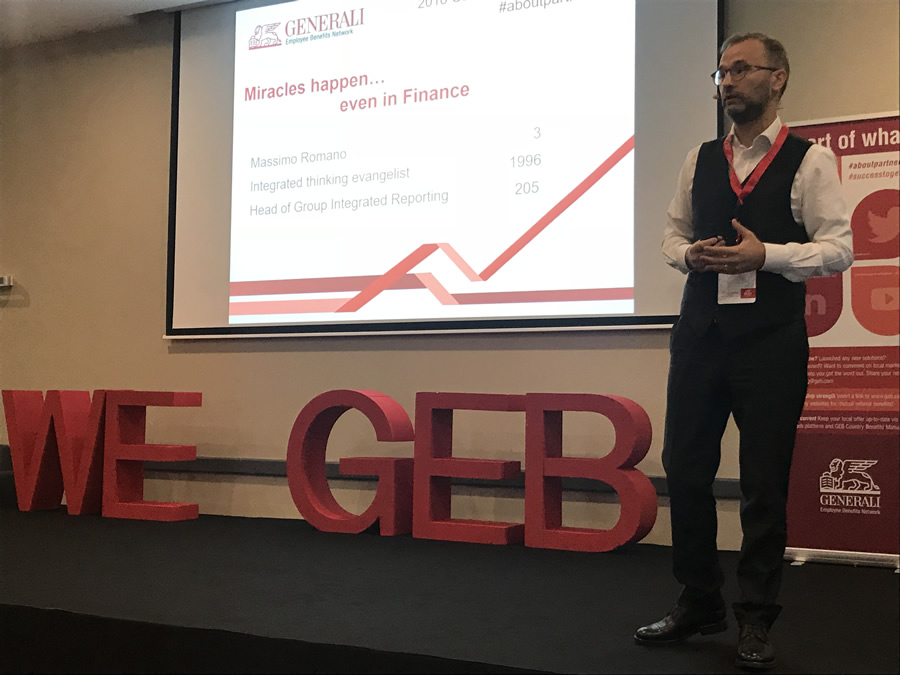November 2018
Endeavoring to reduce complexity in a complex world is something on which we focus very clearly at the Generali Group. And so, when faced with ever-lengthening quarterly and annual reporting – not only with regards to the number of pages but also the number of documents – we decided it was time to re-write the rulebook.
At this year’s GEB Network Partner Conference, Massimo Romano, Head of Group Integrated Reporting for Generali, talked the audience through ‘the tale of 3 miracles’.
Achievement 1: Simplified quarterly reporting
This started with the evolution of quarterly reporting. The goal? To get simpler, smarter and faster in Generali reporting. When the project began in 2013, Generali was producing 4 reports in Q3, totally around 173 pages. Through integrated thinking, this was reduced to just 1 report of 2 pages in length in Q3 2016.
Achievement 2: From ‘core & more’ to ‘all in one’ annual reporting
In order to meet financial, non-financial and strategic requirements, corporate reporting had become very cumbersome. Consider just a few of the annual reports produced in the past: financial supplement, governance report, remuneration report, sustainability supplement, analyst presentation and in the middle of all those the integrated annual report.
Massimo explained that the Group Finance goal was to combine the annual integrated report and the sustainability report - at the time totalling over 200 pages - into one document. In 2017 this was achieved with a document half the size produced.
Achievement 3: Achieving a single European voice on issues that matter
And then came accounting standard IFRS17… Introduced in May 2017 and, at present, with an effective date of 1 January 2021, it has the power to potentially undo some of the work done so far to achieve simplified, integrated reporting.
In response and as part of the CFO Forum (effectively a single European voice on corporate financial matters) Generali has been fully involved in familiarising itself with the complex requirements, undertaking further analysis and considering its potential impact.
Whilst the CFO Forum supports the need for a consistent basis of accounting for insurance contracts, it has reported that it is openly cautious as to whether, in practice, the new standard will provide appropriately relevant, reliable, consistent and understandable results.
The CFO Forum requested this summer that the International Accounting Standards Board (IASB) reopens the standard to resolve the outstanding issues and thus reduce its complexities. Hopefully via the power of a unified voice, a satisfactory (& simplified) outcome can be achieved.
These 3 achievements were made possible thanks to strong interdepartmental cooperation within the Group, demonstrating the importance of a collaborative way of working in a company.
Whilst this work continues, the important message from Massimo on closing his presentation was “Be inspired by the others, but follow your way”.
